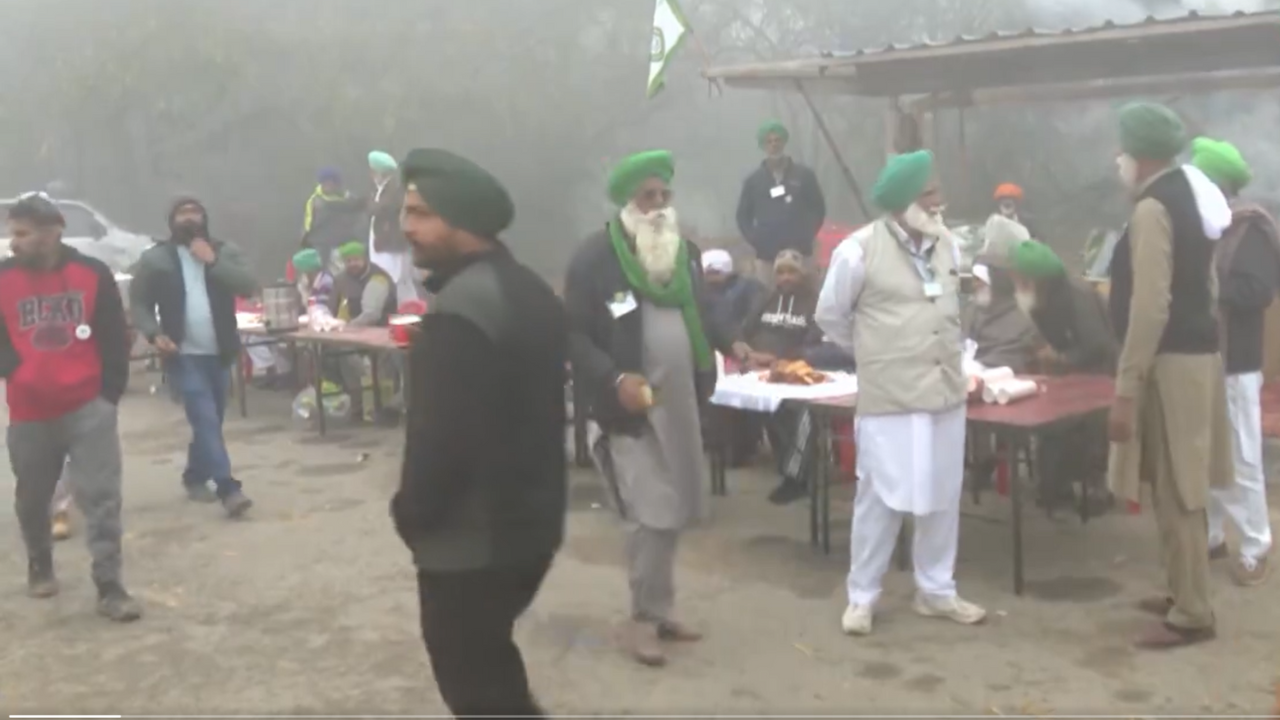 |
|
The ongoing struggle for a legal guarantee on Minimum Support Price (MSP) for agricultural produce in India has reached a critical juncture. For forty days, activist and farmer leader, Dallewal, has undertaken a hunger strike, a testament to the deep-seated frustration and desperation felt within the farming community. This prolonged act of civil disobedience highlights the urgent need for policy changes that address the precarious economic situation faced by many farmers in the country. The impact of fluctuating market prices, coupled with the rising costs of inputs like fertilizers and seeds, has pushed many farmers to the brink of economic ruin. Dallewal's hunger strike serves as a stark reminder of this vulnerability and the need for robust government support to ensure the sustainability of farming and food security in India.
In a significant escalation of the protest, a Kisan Mahapanchayat (farmers' assembly) has been called at the Khanauri border. This gathering is expected to draw a large number of farmers and supporters from across the region, demonstrating the widespread support for Dallewal's cause and the growing demand for MSP legislation. The Khanauri border location itself is symbolic, potentially representing a strategic point of access or a border region where the farmers' grievances are acutely felt. The convergence of farmers at Khanauri promises to amplify the pressure on the government to address the demands of the protesting farmers, turning this local event into a national conversation. The mobilization of a Mahapanchayat is a powerful tool in Indian politics, often leveraging collective action to influence policy.
Dallewal's recent 70-second video message, pleading with the people of India to join him at Khanauri, underscores the urgency of the situation. His call for 'darshan' (a sacred viewing or audience), transforms the protest from a mere political demonstration into a deeply emotional appeal, connecting with the spiritual and cultural fabric of Indian society. The inclusion of this spiritual element adds another layer to the protest, invoking feelings of community, faith, and solidarity. This emotional appeal is a calculated strategy to broaden the base of support for the movement, appealing not just to those directly involved in agriculture, but to the wider Indian population who may empathize with the plight of the farmers. The use of video as a medium allows for immediate and widespread dissemination of the message, amplifying its reach exponentially.
The success of this movement hinges on several factors, including the government's response to the demands, the level of public participation at the Mahapanchayat, and the sustained media attention surrounding the issue. The government's approach will significantly influence the trajectory of the movement. A responsive approach that acknowledges the farmers' concerns and engages in constructive dialogue might lead to a peaceful resolution. Conversely, a dismissive or repressive response could escalate tensions and potentially lead to larger-scale unrest. The participation of the public is crucial. A significant turnout at the Mahapanchayat would demonstrate the widespread support for the movement, enhancing its negotiating power with the government.
The role of media in shaping public perception and influencing government action cannot be understated. Sustained and unbiased coverage of the protest is vital to keep the issue at the forefront of public consciousness. The sustained hunger strike itself is a powerful tool that will continue to draw media attention; however, the effectiveness of this strategy depends on how well the message is communicated and resonates with the wider public. Therefore, successful mobilization and communication are crucial for ensuring the movement's effectiveness and achieving a just resolution for the farmers' demands. The coming days and weeks will be crucial in determining the outcome of this protest and its implications for Indian agricultural policy.
Source: Kisan Mahapanchayat called at Khanauri border as Dallewal's hunger strike enters day 40
